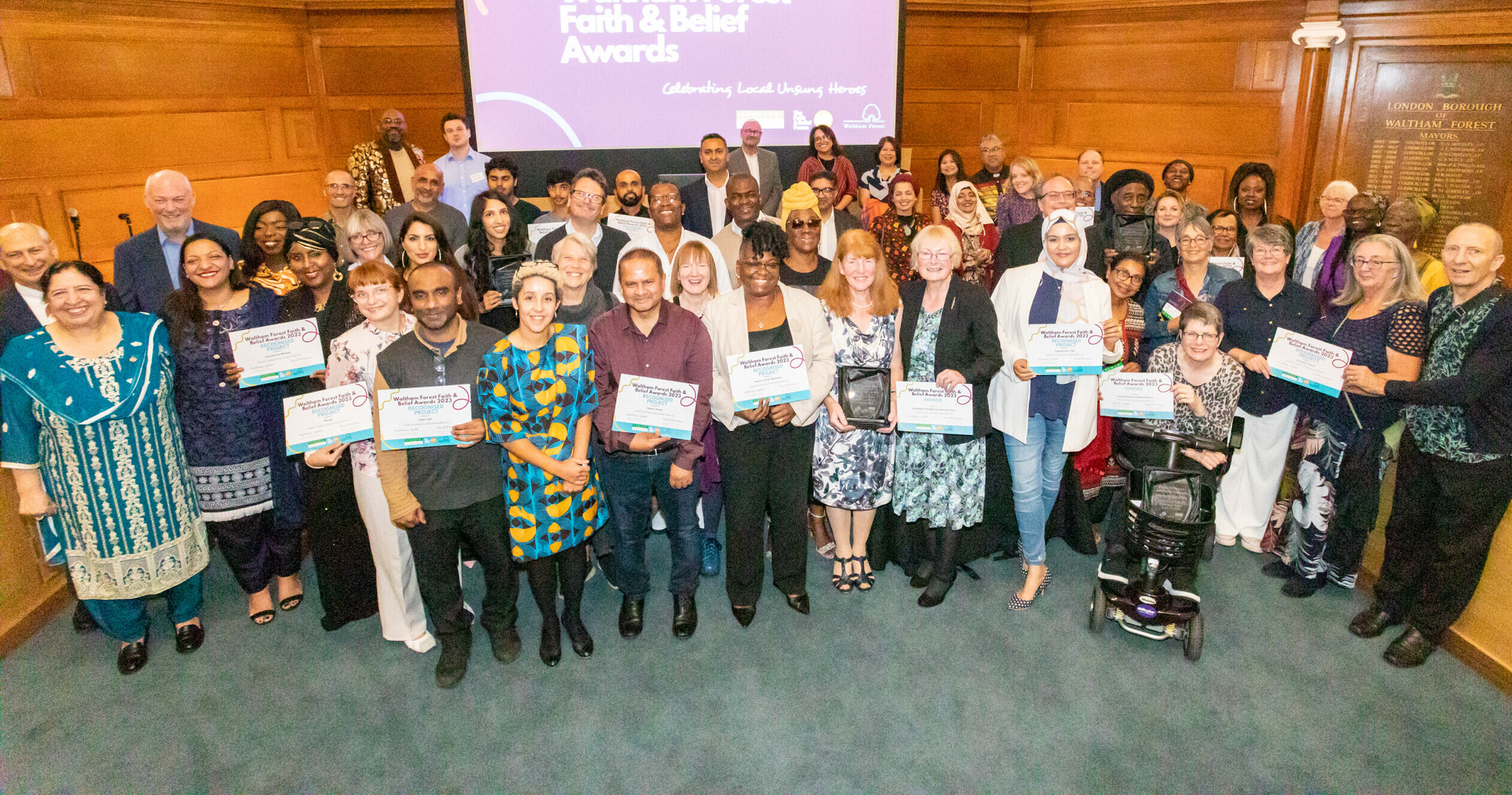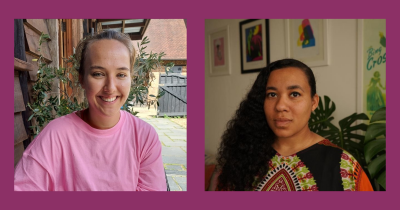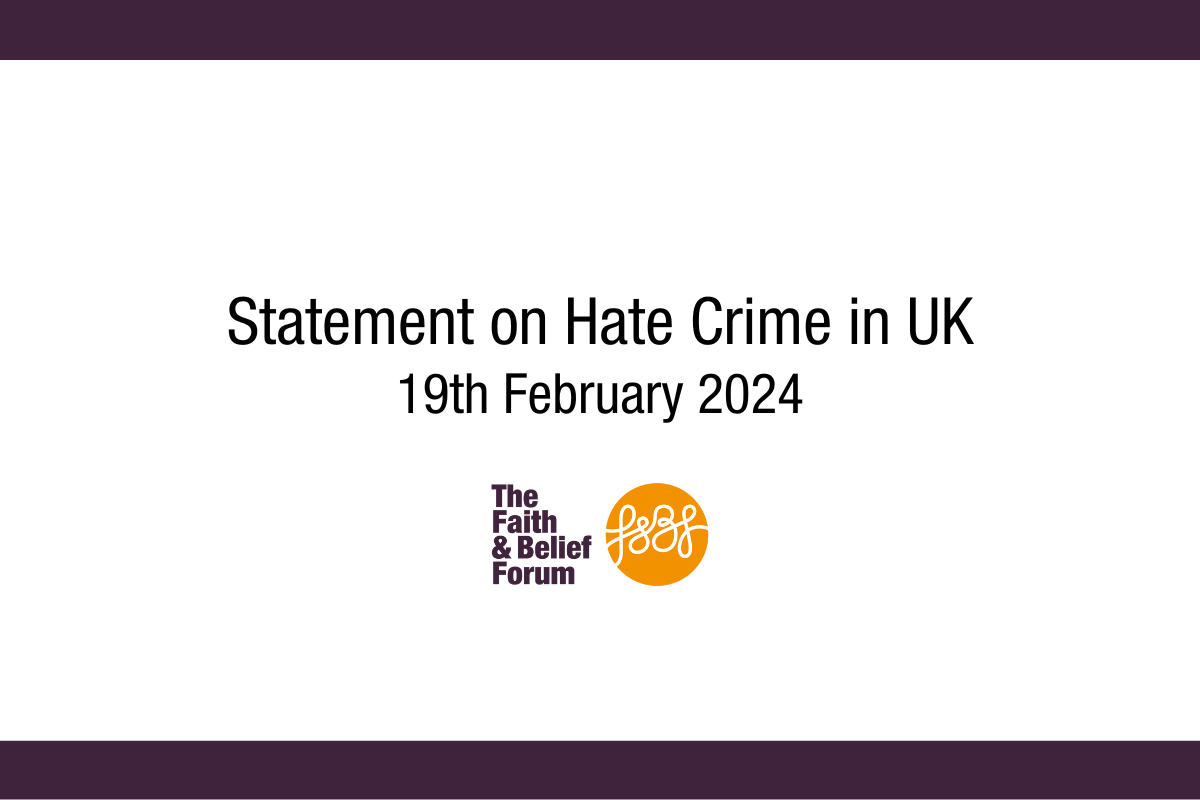
Nominations Open: Camden’s First Faith Awards
15 / 03 / 24
Menu

19 / 12 / 22

We were honoured to be invited as youth representatives for the Faith & Belief Forum at the International Ministerial Conference on Freedom of Religion or Belief (FoRB) in London this July. The conference brought together governments, parliamentarians, faith and belief representatives, and civil society to urge increased global action on freedom of religion or belief for everyone.
The conference presented to us an amazing opportunity to learn from global experience and practice. In addition, it allowed us to reflect on the context of FoRB in the UK which seemingly is often conflated with interfaith movements.
Personal histories
We both were coming into the space as two British-born and British-educated people – holding also, personal familial histories and ancestral memory that would influence how we interacted with the space. Jessica’s grandfather was Iranian and so she has a personal interest in how religion can be used as a tool to limit freedoms and for political domination and violence. Lauryn is a child of Jamaican grandparents and wanted to see how conversations would represent and acknowledge non-western thought.
In addition, we are both people of faith. Therefore, we have a vested interest in showcasing how religion can motivate and offer systems for positive social change and understanding. Moving around the conference centre we saw many familiar faces from the UK interfaith sector but were also impressed by the number of delegates who represented governmental and ‘secular’ institutions such as the UN. This did give us pause for thought about how the experiences of faith communities will be used in this space – would they be an abstract idea, a ‘people’ to be acted upon or would they be centred in the conversation and have a platform?
Through the day we identified two moments which we would like to share. Firstly, an uncomfortable moment and secondly a moment in which people of faith were positively included.
Uncomfortable moments
A truly impactful session we attended under the theme of ‘protection’ was the Declaration of Humanity. The session focused on the critical role that faith and belief leaders can play in dismantling harmful misinterpretations of religious texts used to justify conflict-related sexual violence (CRSV) and denouncing the stigma facing survivors. This session, for us, showed the positive impact that can be made through collaboration between faith leaders and state led initiatives, both parties needed to work together and deeply understand one another to create and promote the Declaration. It also highlighted the importance of listening to and responding to the needs of survivors.
That said, a key aim of the panel discussion was to galvanise support for the Declaration and it concluded with an invitation to participants to add their names to the list of signatories to the Declaration. To encourage this, a survivor was invited onto the stage to share her story. This felt extremely performative and unnecessary. It raised questions for us about re-traumatisation of victims in the FoRB sphere who seemingly have a heavy burden to carry in which they must share destressing experiences in order to gain support from predominantly western faith leaders.
Inspiring moments
Perhaps unsurprisingly, a highlight session for both of us was under the theme of ‘promotion’, entitled engaging the next generation. This wasn’t just because we felt generationally closer to the speakers. The incredibly diverse panel with speakers from Pakistan, USA, Iraq, Nigeria and England gave us a real insight into the lived experience of a people of faith, and how this varies depending on the political and power structures of the countries they live in. They all also spoke from the grassroots – a really important reminder that change needs to be both from the bottom up as well as top down.
A thought shared by an American contributor was the importance of taking religious belief seriously at the cultural level, even in countries that do not have high levels of religiously motivated conflict or restrictions on religious and non-religious belief. She shared that many people would not consider themselves persecuted because they are not being physically attacked or imprisoned like others may be experiencing around the world. However, we can all relate to feeling alone or misunderstood at some point during our lives due to our religion or culture. Everyone has experienced this type of “persecution” at some point in time; and this discussion was an important reminder that in the UK we should shy away from sharing our beliefs with others. By sharing lived experiences of faith, we can build understanding of and empathy with each other. This in turn motivates us to speak out against the persecution of others when possible!
Final reflections
Leaving the conference, we both felt a renewed sense of purpose and mission, but also felt the need to reflect on how what we had learned would impact our work.
We had witnessed many conversations that focused on legal philosophical language around rights and freedoms that lacked context of people of faith. Although we understand that legislation is needed in order to unite nation states behind legal principles that can hold people to account, there is a difference between how the law operates in writing and practice. As we saw amongst those gathered for discussion, there was little disagreement with neutrally worded legislation offering and securing religious freedom. But the work does not end there.
To have greatest effect, the principles contained in legislation must be disseminated into the communities in which they are to be implemented and culturally specific issues must then be engaged with to achieve the desired results in practice. This cannot be a top-down imposition. Therefore, the way grassroots movements, organisations, and young people (who will carry this work forward and help to secure it in society) are brought into the implementation of these big conversations will be increasingly important moving forward.
Sitting in the plenary session, we felt that this had been missing from the conference. Following the important and inspiring conversations in the break outs, the question ‘what now?’ was on the lips of many attendees. This was a question that remained unanswered from the podium on the main stage.
So, what now?
As for us, we know that we will be continuing the work at the grassroots, bringing communities together for dialogue and understanding. We want to focus attention on how people within the UK hold freedom to practice their religion and beliefs. Our work on university campuses, for example, shows that many students do not feel safe to practice their faith openly or reveal their full selves. We seek to address this through our ParliaMentors programme, equipping young people with the skills they need to become leaders and hold the space for others to express themselves freely.
Authors: Jessica Hazrati and Lauryn Duncan-Rouse

15 / 03 / 24

19 / 02 / 24

16 / 02 / 24